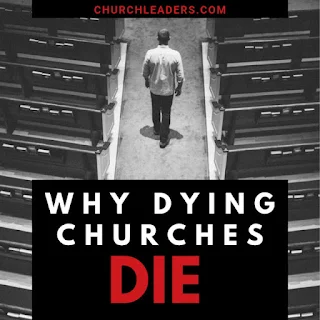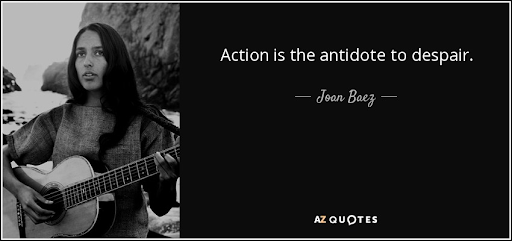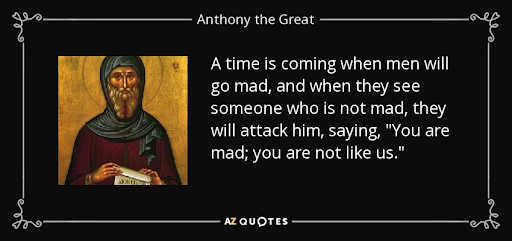(1) because they refuse to admit they’re sick,
(2) they don’t take sufficient responsibility,
(3) they are too inwardly focused,
(4) they want to return to the glory days,
(5) they are waiting for the super pastor,
(6) they are unwilling to change.
- Fully against injustice.
- Concern for the poor and the marginalized.
- Pro-life.
- Sex should be only between one man and one woman within marriage.
Divine scrutiny (Ps 26:2). The psalmist invites divine examination, confident of his blameless character. This motif appears in other psalms as well (Ps 7:6-9; 11:4-6; 14:2-3; 17:2-5).
“God uses chronic pain and weakness, along with all the other inflictions, as his chisel for sculpting our lives. It deepens our dependence upon Christ for strength each day. And the weaker we feel, the harder we lean, and the harder we lean, the stronger we grow spiritually.” J. I. Packer.
"Many of my daily preoccupations suggest that I belong more to the world than to God. A little criticism makes me angry, and a little rejection makes me depressed. A little praise raises my spirits, and a little success excites me. It takes very little to raise me up or thrust me down. Often I am like a small boat on the ocean, completely at the mercy of its waves." Henri Nouwen.
We not only bury our dead as if they were still alive, but we also bury our pains as if they were not really there. We have become so used to this state of anesthesia that we panic when there is nothing or nobody left to distract us. Nouwen.
"For most of my life I have struggled to find God, to know God, to love God. I have tried hard to follow the guidelines of the spiritual life—pray always, work for others, read the Scriptures—and to avoid the many temptations to dissipate myself. I have failed many times but always tried again, even when I was close to despair.
Now I wonder whether I have sufficiently realized that during all this time God has been trying to find me, to know me, and to love me. The question is not “How am I to find God?” but “How am I to let myself be found by him?” The question is not “How am I to know God?” but “How am I to let myself be known by God?” And, finally, the question is not “How am I to love God?” but “How am I to let myself be loved by God?” God is looking into the distance for me, trying to find me, and longing to bring me home." Nouwen.
The two main enemies of the spiritual life--anger and greed--are the inner side of the secular life, the sour fruits of our worldly dependences. “Compulsive” is the best adjective for the false self--the need for ongoing and increasing affirmation. Who am I? I am the one who is liked, praised, admired, disliked, hated, or despised. . . . If being busy is a good thing, then I must be busy. If having money is a sign of real freedom, then I must claim my money. The compulsion manifests itself in the lurking fear of failing and the steady urge to prevent this by gathering more of the same—more work, more money... Nouwen
When we are trembling with fear or seething with anger, we have sold ourselves to the world or to a false god. Fear and anger take our freedom away and make us victims of the strong seductions of our world. Nouwen.
"Many Princes sin like David but few repent with him." Benjamin Franklin. Poor Richard Improved, 1754.
“You judge me, O Lord, for, although no one ‘knows the things of a man but the spirit of man which is in him,’ there is something further in man which not even that spirit of man which is in him knows. But you, Lord, who made him, know all things that are in him. Although I despise myself before your sight, and account myself but dust and ashes, yet I know something of you which I do not know about myself. In truth, ‘we see now through a glass in a dark manner,’ and not yet ‘face to face.’ … Let me confess, then, what I know about myself. Let me confess also what I do not know about myself, since that too which I know about myself I know because you enlighten me. As to that which I am ignorant of concerning myself, I remain ignorant of it until my ‘darkness shall be made as the noonday in your sight.'”—St. Augustine, Confessions.
St. Anthony of the Desert (251–356 A.D.), also known as St. Anthony the Great (or St. Antony the Great) and also St. Anthony of Egypt, was a leading figure among the Desert Fathers, the early Christian monks who lived in the Egyptian desert in the 3rd and 4th centuries.

- You can't praise God in Sheol (Ps 6:5). In the O.T., in its broad usage, Sheol is the name of the "place" where the dead live on. God doesn't do anything for people in Sheol.
- "...you will not abandon my soul to Sheol" [Motyer] (Ps 16:10). The O.T. had a clear understanding that there is life after death, though clarity about the conditions of that life awaited the coming of Jesus (2 Tim 1:10). Ps 16:10 (compare Ps 49:14-15; 73:23) indicate a fuller hope than merely living on in Sheol.
- It seems probable that the term Sheol frequently, if not always, designated the nether world, and that as such it represented the continuing abode of the ungodly. But whereas the wicked were thought to remain in the dark, silent region of Sheol, the righteous lived in the hope that God would deliver them from the power of death and take them to himself (cf. Ps. 49:15).
- Did the ancient Jews believe in life after death? “Most of the scholarly world agrees that there is no concept of immortality of life after death in the Old Testament.”
- Gen 5:24. 2 Ki 2:11. Job 13:15; 14:13-17. Ps 16:10-11; 17:15; 21:6; 49:15; 73:24-26. Isa 26:19. Dan 12:2 (Jn 5:28-29; Mt 25:46). 2 Sam 11:23. Almost all ancient Jewish believers affirmed the existence of an afterlife and the immortality of the soul. While the Sadducees denied the existence of the afterlife, Josephus records that all other Jews believed “the souls are immortal, and continue forever” and were subject to reward or “eternal punishment.”
- Before Jesus paid for sins, people waited in Sheol. We might think of Sheol as a temporary holding tank before Heaven was opened. The OT mentions Sheol 65 times. It is said to be in the depth of the Earth (Ps 63:9; 86:13; Isa 14:9; Num 16:30). The afterlife was a place of darkness (Job 10:21-22) and silence (Ps 94:17; 115:17), but it was also considered a conscious existence (Isa 14:9-10; Eze 32:21-31; Dt 18:11; 1 Sam 28:11-15). While both the righteous and unrighteous dead went to Sheol, the righteous are said to “enter into peace” (Isa 57:2). By contrast, the unrighteous dead went to “the lowest part of Sheol” (Dt 32:22; c.f. Isa 14:15; Eze 32:23).

Do Old Testament Jews believe in heaven and eternal life?
Beliefs among OT Jews regarding the afterlife, heaven, and eternal life varied. The OT/the Hebrew Bible, does not provide explicit and detailed descriptions of an afterlife as we might find in some later religious traditions. The focus of the OT is often on earthly life, the covenant between God and the people of Israel, and the importance of following God's commandments.
While some passages in the OT hint at an afterlife or resurrection, the concepts are not as clearly defined as they are in later Jewish, Christian, or Islamic traditions. There is mention of Sheol--a shadowy realm or underworld where the dead are thought to reside, but it's not necessarily portrayed as a place of reward or punishment.
Beliefs about the afterlife evolved over time, and by the time of the Second Temple period (around 516 BCE to 70 CE), there were diverse views within Jewish communities. Some Jewish groups, like the Pharisees, believed in a resurrection of the dead and the concept of an afterlife with rewards and punishments. Other groups, like the Sadducees, did not share these beliefs.
It's essential to note that interpretations and beliefs among OT Jews were not uniform, and views on the afterlife varied among different sects and individuals. The detailed development of ideas about heaven and eternal life became more prominent in later Jewish traditions, as seen in the writings of the Talmudic and Rabbinic literature.
Inerrancy and Infallibility. Saving Inerrancy from the Americans? (11/10/21)
American evangelicals demand a rigid precision for inerrancy not shared by the global church, they position inerrancy rather than christology as the chief marker of orthodoxy, and they police inerrancy in their networks with a Taliban-esque ferocity.
Look, evangelicals outside of America believe in the Bible, but for many conservative evangelicals in America, inerrancy is bigger than Jesus!
However, while many American evangelicals preached the inerrancy of the text, what they often practiced was the inerrancy of their interpretation and the hegemony of their tribe in certain denominations. Raising the banner of inerrancy was a great way to ... justify canceling persons who interpreted the Bible in such a way that undermined the power base of certain leaders. In other words, inerrancy was a castle but soon became a concentration camp.
Problems in the inerrancy debates in American evangelical circles. 8 minutes.
















No comments:
Post a Comment